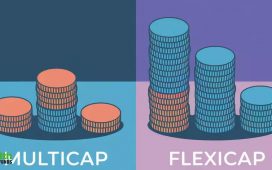This means the indexation benefit in debt mutual funds that lowered the tax outgo for investments held for more than three years has been removed. With this, they will be taxed like other fixed income instruments such as fixed deposits, non-convertible debentures (NCDs) and bonds.
Wealth managers said investors will now increasingly consider fixed deposits and other debt instruments that have been offering better rates than several debt mutual funds.
“Fixed deposits will be at par with some debt schemes once the tax advantage is gone from a retail investor’s perspective,” said Ashish Shankar, MD and CEO, Motilal Oswal Private Wealth. “For HNIs and family offices, direct debt and structured debt will become more attractive.”
Liquid schemes, in which investors and companies park their idle cash, will be least impacted as the investment horizon in this debt category is lower anyway.
According to the Finance Bill amendment, investments in mutual funds with equity allocation of up to 35% will be taxed in line with an investor’s income tax slab rate. Income from debt funds, gold funds and international funds will now be deemed as short-term capital gains and taxed at the marginal rate.
Currently, a debt fund held for more than three years is liable for 20% capital gains tax with indexation benefits.Rich investors and family offices preferred debt mutual funds over fixed deposits, government securities and corporate deposits because of this. Now, these investors, who are at the highest tax bracket, must pay a tax of 30% with surcharge across all taxable debt instruments.
Of the total mutual fund industry assets under management (AUM) of Rs 40 lakh crore, Rs 13 lakh crore is invested in pure debt schemes. Of this, Rs 6 lakh crore is in the liquid, ultra-short and overnight category, Rs 3 lakh crore in short-duration schemes of one-three years and Rs 4 lakh crore in long-duration ones.
“This is a negative for the MF industry having non-liquid debt AUMs (assets under management) of Rs8 trillion (19% of AUMs) as the relative attractiveness due to tax arbitrage goes away,” said CLSA analyst Adarsh Parasrampuria. “Liquid MFs of Rs 6.6 trillion will not be impacted materially as they are anyway a short-term product and there is no material change in tax attractiveness.”
Shares of listed asset managers dropped in Friday’s trade in response to the government’s decision. HDFC Asset Management fell 4.2%, UTI Asset dropped 4.8%, Nippon Life declined 1.6% and Aditya Birla Sun Life tumbled 4.4%.
Mutual funds expect flows to decline in long-duration schemes and target maturity funds.











